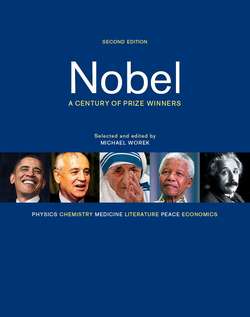Читать книгу Nobel - Michael Worek - Страница 48
На сайте Литреса книга снята с продажи.
ОглавлениеErik Axel Karlfeldt (1864–1931)
1918 Literature Prize was refused.
1931 Literature Prize awarded posthumously.
He turned down the prize to dedicate himself to academy matters as a member and secretary from 1904 till the date of his death.
Erik Axel Eriksson came from old Swiss mining families on both his father’s and mother’s sides. He attended schools in his hometown of Folkarna as well as in Västerås. In 1889 Erik Axel adopted the name Karlfeldt, by which he would be known from then on. It was not a family name but was derived from the title of his father’s property. Rural culture had an influence on him throughout his life, and it became a favorite subject of his future literary work.
Karlfeldt started to write poems while still a student and the first collection, Vildmarks-och kärleksvisor (Songs of the Wilderness and of Love), was published in the autumn of 1895, three years after he had graduated from the University of Uppsala. His professional activity, however, had already begun when, between 1893 and 1896, he taught in a private elementary school in Djursholm and gave lessons to adults in Molkom. Besides this, he was also a journalist for a Stockholm periodical for a short period of time.
After concluding his studies, he worked in the Royal Library in Stockholm, Sweden, for five years and then was appointed librarian at the Agricultural Academy. Meanwhile his poetic talents had begun to be noticed and, in 1904, he was elected to the Swedish Academy, becoming a member of the Nobel Institute of the Academy as well as a member of the Nobel Committee. In 1912 he was appointed permanent secretary of the academy and dedicated himself entirely to the position and to poetry.
In 1916 he married Gerda Holmberg and the couple had four children. In 1918 he was awarded the Nobel Prize in Literature, which, for ethical reasons, Karlfeldt turned down due to his very strong links with the academy. The rejection was so firm that there were practically no records of the distinction; according to the official lists the prize was not attributed.
In 1931, however, Karlfeldt was once again recognized with the Nobel Prize in Literature, this time posthumously. It was the only way the academy found to thank Karlfeldt without giving him the opportunity to turn down the prize.
A Lutheran who did not like to expose his private life and more inner reflections — it was for this reason that he sought an alter ego to represent his feelings — Karlfeldt left a body of poetry replete with characters based on Swedish traditions. His works reflect his own position toward the world, with a sense of humor, integrity and beauty of benefit to the collective and the individual.
